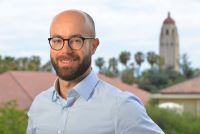NVIDIA WEBINAR
Sub brand
Date: Wednesday, August 19, 2020
Time: 10:00am – 11:00am PT
Duration: 1 hour
Time: 10:00am – 11:00am PT
Duration: 1 hour
Stanford University uses deep neural networks to estimate asset pricing for individual stock returns, taking advantage of a vast amount of conditioning information while keeping a fully flexible form and accounting for time variations. Their key innovations include using the fundamental no-arbitrage condition as the criterion function, constructing the most informative test assets with an adversarial approach, and extracting the states of the economy from many macroeconomic time series.
By attending this webinar you'll learn:
- How Stanford University’s asset pricing model outperforms all out-of-sample benchmark approaches in terms of Sharpe ratio, explained variations, and pricing errors
- How to identify the key factors that drive asset prices
- The asset pricing model that yields profitable machine learning investment strategies
WEBINAR REGISTRATION
THANK YOU FOR REGISTERING FOR THE WEBINAR
You will receive an email with instructions on how to join the webinar shortly.
Main Content
maincontent goes here
Content
Content goes here
Content
content goes here
Content
Content goes here
Content
DGX Station Whitepaper
Dive deeper into the DGX Station and learn more about the architecture, NVLink, frameworks, tools and more.
Dive deeper into the DGX Station and learn more about the architecture, NVLink, frameworks, tools and more.
DGX Station Whitepaper
Dive deeper into the DGX Station and learn more about the architecture, NVLink, frameworks, tools and more.
Dive deeper into the DGX Station and learn more about the architecture, NVLink, frameworks, tools and more.
Content
Content goes here
Speaker

Markus Pelger
Assistant Professor of Management Science & Engineering, Stanford University
Markus Pelger is an Assistant Professor of Management Science & Engineering at Stanford University and a Reid and Polly Anderson Faculty Fellow. His research focuses on understanding and managing financial risk. He develops mathematical financial models and statistical methods, analyzes financial data and engineers computational techniques. His research is divided into three streams: stochastic financial modeling, high-frequency statistics and statistical learning in high-dimensional financial data sets. His most recent work includes developing machine learning solutions to big-data problems in empirical risk management and asset pricing.
Markus' work has appeared in the Journal of Finance, Review of Financial Studies, Journal of Applied Probability and Journal of Econometrics. He is an Associate Editor of Management Science and also referees for several journals in the fields of statistics, econometrics, finance and management. Markus received his Ph.D. in Economics from the University of California, Berkeley. He is a scholar of the German National Merit Foundation and he was awarded a Fulbright Scholarship, the Institute for New Economic Thinking Prize, the Eliot J. Swan Prize, the Graduate Teaching Award at Stanford University, the Utah Winter Finance Conference Best Paper Award and the Best Paper in Asset Pricing Award at the SFS Cavalcade. He has two Diplomas in Mathematics and in Economics, both with highest distinction, from the University of Bonn in Germany.
Presenter 2 Bio
Presenter 3 Bio
Presenter 4 Name
Job Title 4Presenter 4 Bio
Other Speakers
Name1
Job Title.
Job Title.
Name 2
Job Title.
Job Title.
Name 3
Job Title.
Job Title.
Content Title
Content here